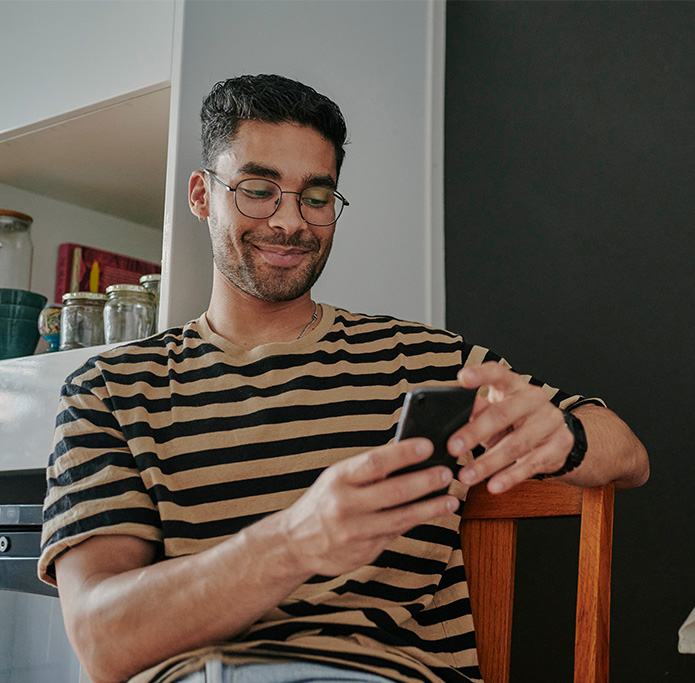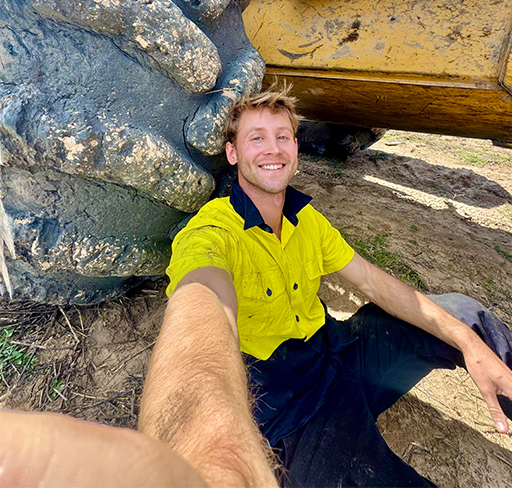Key takeaways
- Discover what a financial gap year is and how it can boost your savings.
- See how living regionally is helping Tim reduce his cost of living and reach his home ownership goals faster.
- Learn practical budgeting and money-management tips from a financial gap year experience.
- Find out how a financial gap year can reshape your relationship with money.
For many young Australians, the dream of home ownership feels increasingly out of reach – especially when rising rents and high cost of living eat up hard-earned savings. For 31-year-old Tim Abbott, a Sydney-born digital marketer, it took a moment of reckoning (and a little inspiration from friends) to hit pause on city life and try something radically different: a “Financial Gap Year” working in rural Queensland.
Trading a city sharehouse rental for a caravan on a cattle property, Tim is on track to save $100,000 in just one year. He speaks to us about what motivated his big move, how he’s managing life far from Sydney’s buzz, and what he’s learned about money, priorities and his goals for the future.
Tim, can you tell us a bit about yourself and what a financial gap year means to you?
Hey guys! I’m 31, and grew up in Sydney. After school, I studied communications at UTS and went on to a few different careers; television production, IT, a tech marketing start-up and digital marketing. I started creating content in the form of memes when I was bored during lockdown, and after gaining traction with those, that’s evolved into vlogging my life and some amazing opportunities, like being an ambassador for the Sydney Swans. I am also a keen runner and completed two Ironman triathlons this year.
Sydney is known for its vibrant lifestyle, but also its high cost of living. Was there a particular moment that sparked your idea for a “Financial Gap Year”, and you realised you needed to do things differently to reach your goal of buying a home?
Absolutely. My two close friends moved up to Forster last year to do exactly this and work remotely. Pretty much everyone I know was talking about rental increases and all their hard-earned money going out the door just to live the lifestyle of Sydney. It was the first time I really looked at where my money was going, and once I saw how much I was paying in rent to live in a shared apartment, I knew something had to change in order to get to my next financial goal.
Moving from Sydney to a remote part of Queensland is a big change. What was it like making such a bold leap? Did you have any doubts or hesitations?
It certainly is a big change, but I’ve lived in London and Darwin before, and those felt like bigger moves at the time. I still get to visit Brisbane for a couple of days every few weeks on my days off, which gives me time to see friends and a touch of my “normal” life again. As I’ve been saying to friends and people online, there are certainly easier ways to do this – like moving in with your parents if that’s an option for you. I also love experiencing new things and the “adventure” of this all, so I probably found it more exciting than daunting if I’m honest.
Walk us through your cost of living now versus life in Sydney. What are the biggest savings you’ve noticed?
Oh my gosh, rent! I can’t believe I was paying nearly $40,000 a year to rent a room in Sydney. That is nuts! A number that’s nearly doubled in the last five years… and my salary certainly hasn’t doubled in that time.
I bought a one-bedroom apartment in 2022 thinking it was the best thing to do with my life savings. I’m sure most Australians have been told their whole life that property is the best investment. I lived there myself for two years, and the mortgage repayments were achievable, but my building’s strata committee and management decided to do $1.4 million worth of works on the building, costing each apartment a small fortune in special levy fees. I moved back into a sharehouse rental and rented the property out in order to be able to make those additional payments, but even that wasn’t enough considering the cost of rent in Sydney. It’s been a heartbreaking and expensive lesson, especially after renovating the kitchen and bathroom, but I’ll ultimately sell the apartment to go towards the house. But I’ll never buy a strata-managed property ever again, I can promise you that!
Now in Western Queensland, I’m currently living rent-free, which is included in my salary out here. Granted, that’s in a caravan and not the eastern suburbs of Sydney. But it’s FREE and has all the amenities I need.
Food all has to be bought ahead of schedule, as we are 1.5 hours from the closest supermarket. So I stock up and know what I’m eating for the next two to three weeks. I was pretty good at not spending a lot while in Sydney, but those unavoidable $100 birthday dinners pop up all the time… and the takeaway, etc., it all adds up. Whereas food here is probably costing me $250 a month.
The lifestyle here is also pretty much all “free”, but in saying that, I basically just work and go for a run in the afternoon. Internet, utilities, etc., are covered by the employer. Contrasting that to Sydney, my $70 weekly gym membership, the tolls, the petrol, it just goes on and on. Sydney is certainly more “fun” but comes with a big price tag.
What does a typical day look like for you in regional Queensland? Is there anything about country life that surprised you?
This may sound very “Sydney eastern suburbs” right now, but I do wake up and meditate every day – it keeps me peaceful. Then work starts around 6.30am and I work outdoors until around 4pm each day. I love being outside for a change. All my jobs have pretty much been glued to a screen and keyboard, so to have cows and emus walking around while you’re working feels very refreshing. Then, when I clock off, I try to get an 8-10km paddock run in before dinner, then call my friends and boyfriend, then do my infrared mask and head to bed around 7.30-8pm and watch a show on my iPad. It’s very rinse and repeat, but also very wholesome. I think the ability to stay so connected has surprised me, too. We couldn’t be more remote if we tried, but having satellite internet doesn’t make me feel as far as we are.
Many people worry about leaving friends, family, and familiar comforts behind. How have you managed the social and emotional side of your move?
I think missing my comforts of having a big shower and being clean has taken adjusting, but I’ve since gotten used to that. I’m surprised by how little I really need to live my life. I do really miss my friends and family, but they’re all so supportive and really feel their support while I’m out here. I think also having the time limit on it has made it easier to swallow, so to speak. I’m already a quarter in and that’s flown by!
Were there any sacrifices you had to make that were tougher than you expected? How did you manage those moments?
The biggest sacrifice would be missing out on moments and day-to-day life with my friends. I know it will all be waiting for me when I return, but it is tough seeing your friends going out and having fun without me. I will be leaving the property to attend two weddings, though. I just couldn’t justify missing those.
Other than the social aspect being tough, I do miss having access to a gym. But I think I really took that luxury for granted and didn’t register that it’s a huge privilege to have access to and afford those things in life. I’ve managed by just having to pivot to running, which you can do anywhere, and moving my catch-ups to FaceTime for now. If I didn’t have access to the internet, that would be a completely different story.
You’re on track to save around $100,000 in a year, which is amazing. What are some practical money-saving habits or tips you’ve picked up that others could try, even if they stay in a city?
Great question! Before I moved out here, I really looked at my monthly savings and asked, “do I really need this?” Anything recurring and monthly that’s charged to your account should be scrutinised in a budget. I changed phone plans, which saved me $50 a month, got rid of my streaming services, and just pay for renting individual movies on iTunes, and did most of my eating at home. I had stripped my life so far back before doing this that this was kind of the next evolution in my big savings effort. There are apps that help you do this, too!
Has your relationship with money changed since making this move? What have you learnt about spending, saving, and what truly matters to you?
It certainly has. I always valued a dollar, but living so remotely and not having places to impulsively spend, it’s removed that knee-jerk reaction to walk past a store or cafe and just buy something. A lot of that I thought was just so hardwired into my day-to-day living in the city. I think also having the bigger savings goal of increasing my house deposit is super motivating. Without the goal, this gap year would feel a lot more aimless, I think.
Looking back over the past six months, is there a financial habit you discovered that you wish you’d started using sooner?
Yes, two things. I’ve started a weekly auto-investment into an ETF as soon as I get paid, and that’s a nice set and forget way to have my money investing before I can spend it. In a similar vain, the other thing I did was heavily scrutinise any direct debits (subscriptions, phone plan, memberships) and canceled most of them. As individual items they might seem trivial, but all together, and over the space of a year, it really adds up and is better off sitting in my pocket than going straight out the door!
Once you reach your savings goal, what’s next for you? Do you see yourself returning to Sydney, or has regional life won you over?
Another great question that I’m thinking about a lot. I think where I am right now is too remote for me long-term, especially being in a relationship. I can’t say I’d rush back to Sydney to live, but certainly to visit. I love Sydney so much, but it’s just too expensive for the lifestyle I want and where I’m at financially in my life. I’d love to put this money towards a house deposit, but if I’m still priced out, I’ll invest into my superannuation or an index fund. We really do believe in Australia that property is the only way to build wealth, and I’ve somewhat bought into that dream and idea, too; however, if I need to pivot again and use the money to invest, I absolutely will.
We're following Tim’s Financial Gap Year journey on our social channels. Keep up to date with his progress via our Instagram and TikTok.

See how salary sacrificing could boost your super
Thinking about ways to grow your super and plan for a more comfortable retirement? Salary sacrificing into your super could be a smart move, but what does it mean for your take-home pay today and your super balance tomorrow?
In just a few clicks, you can see how contributing a portion of your pre-tax income to your super could help you build wealth for the future, while understanding what it means for your current pay packet.
You may also like
-
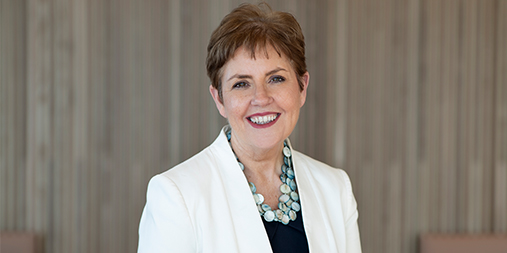
Creating your tomorrow: AMP CEO Alexis George’s 2025 wrap-up From game-changing launches to big wins for our customers and community, 2025 has been a standout year at AMP. CEO Alexis George talks about our bold moves, new innovations and the real impact we’ve made together. -
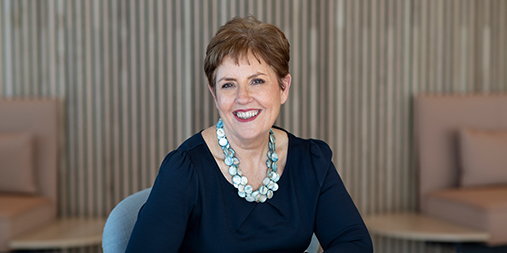
CEO Alexis George on the key to building retirement confidence With only half of Australians feeling financially confident about their retirement, AMP’s CEO Alexis George shares how she prepares for the future, and small steps that can make a difference. -
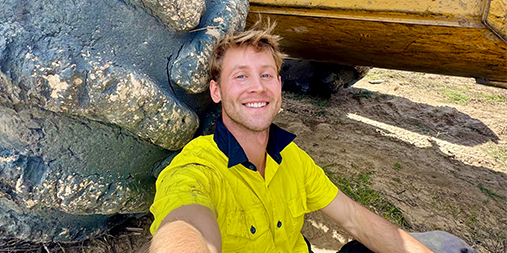
The “Financial Gap Year” that’s helping save $100,000 toward buying a home Tim Abbott left behind the big city for a remote farm property on a bold “Financial Gap Year”. He shares the lessons, sacrifices and surprises he's found along the way.
Important information
Any advice and information is provided by AWM Services Pty Ltd ABN 15 139 353 496, AFSL 366121 (AWM Services) and is general in nature. Any general tax information provided is intended as a guide only and not to be relied upon. We recommend you consult with a registered tax agent / tax professional before deciding to act on the information provided. This hasn’t taken your financial or personal circumstances into account. If you want financial advice about what is right for you, refer to a financial adviser.
It’s important to consider your particular circumstances and read the relevant product disclosure statement, Target Market Determination or terms and conditions. You can contact us by messaging us through the AMP Bank GO app before deciding what’s right for you.
You can read our Financial Services Guide online for information about our services, including the fees and other benefits that AMP companies and their representatives may receive in relation to products and services provided to you. You can also ask us for a hardcopy.
All information on this website is subject to change without notice.



